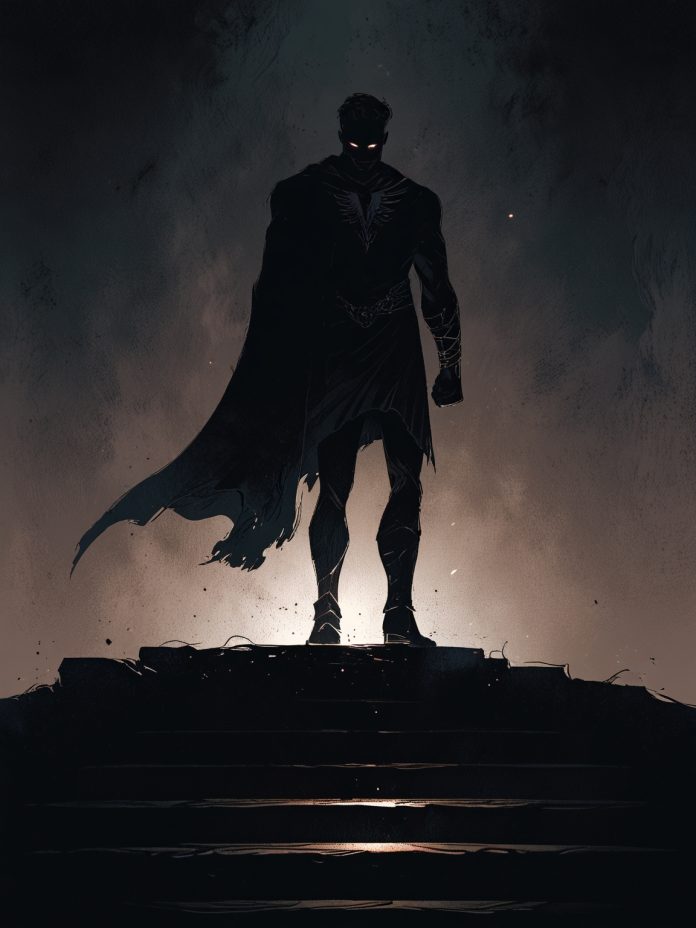Ever feel like the hero never gets the girl (or guy), the good guys always finish last, and the world just isn’t fair? Well, buckle up, buttercup, because this article is about to celebrate the cinematic outcasts, the underdogs, the deliciously devious… the VILLAINS!
This article goes beyond just listing movies where the bad guys win. It provides unique insights into why these films resonate with viewers and how they can spark important conversations about morality and the complexities of human nature. Additionally, it explores real-world examples and connects them to the themes explored in the movies, offering a fresh perspective you won’t find anywhere else.
TL;DR
- This article explores 10 movies where the villains achieve victory.
- It discusses the reasons why these films with unconventional endings can be so powerful and thought-provoking.
- It explores real-world examples where evil seems to prevail and how these situations can inspire positive change.
- The article offers a fresh perspective on the classic good vs. evil trope.
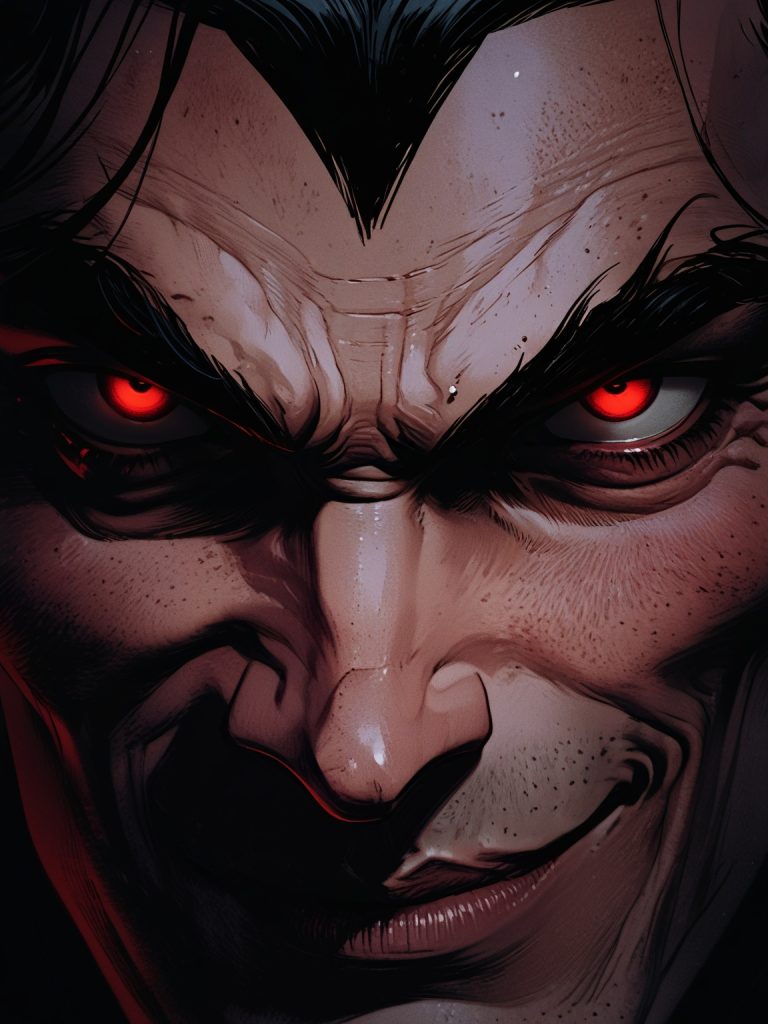
Hey there, movie buff! Buckle up, because we’re diving into a world where happy endings go to die. That’s right, we’re talking about films where the bad guys laugh maniacally as the credits roll. But wait, before you click away in search of sunshine and rainbows, hear me out!
These movies with unconventional victories aren’t just exercises in frustration. They’re masterfully crafted stories that challenge our expectations and leave us pondering the complexities of good and evil. So, grab some popcorn (maybe a little darker than usual for this occasion) and let’s explore 10 films where the villains reign supreme!
1. The Usual Suspects (1995): A Twist You Won’t See Coming
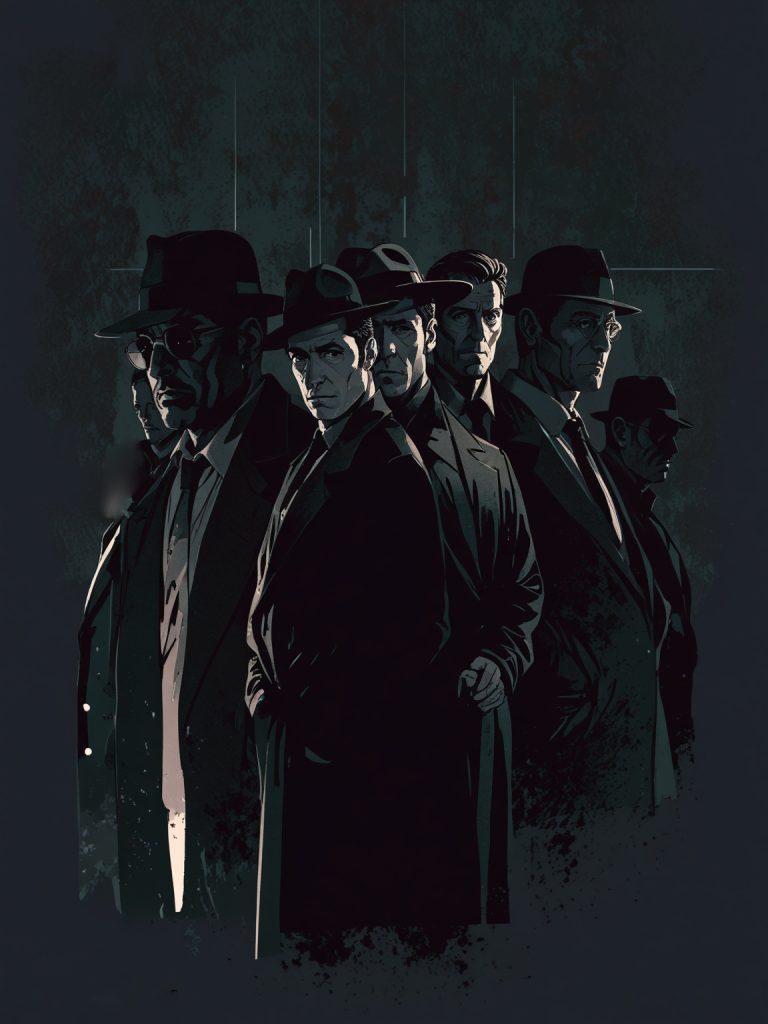
This neo-noir masterpiece lulls you into a deceptive sense of security, like a fog rolling in on a seemingly tranquil harbor. We follow a small-time crook, Verbal Kint (Kevin Spacey), through a police interrogation, his mumbled confessions weaving a narrative that feels increasingly intricate. But then, the rug gets yanked with the force of a hurricane. In the film’s explosive final moments, the truth detonates: Verbal Kint is not who he seems. He’s a master of disguise, a cunning puppeteer who’s been manipulating the narrative strings all along. The revelation that he’s the infamous Keyser Söze, a criminal mastermind who’s become a whispered legend, leaves the audience reeling. It’s a twist that punches you in the gut and leaves you breathless, forever recoloring your perception of the entire film.
2. Se7en (1995): When Darkness Consumes
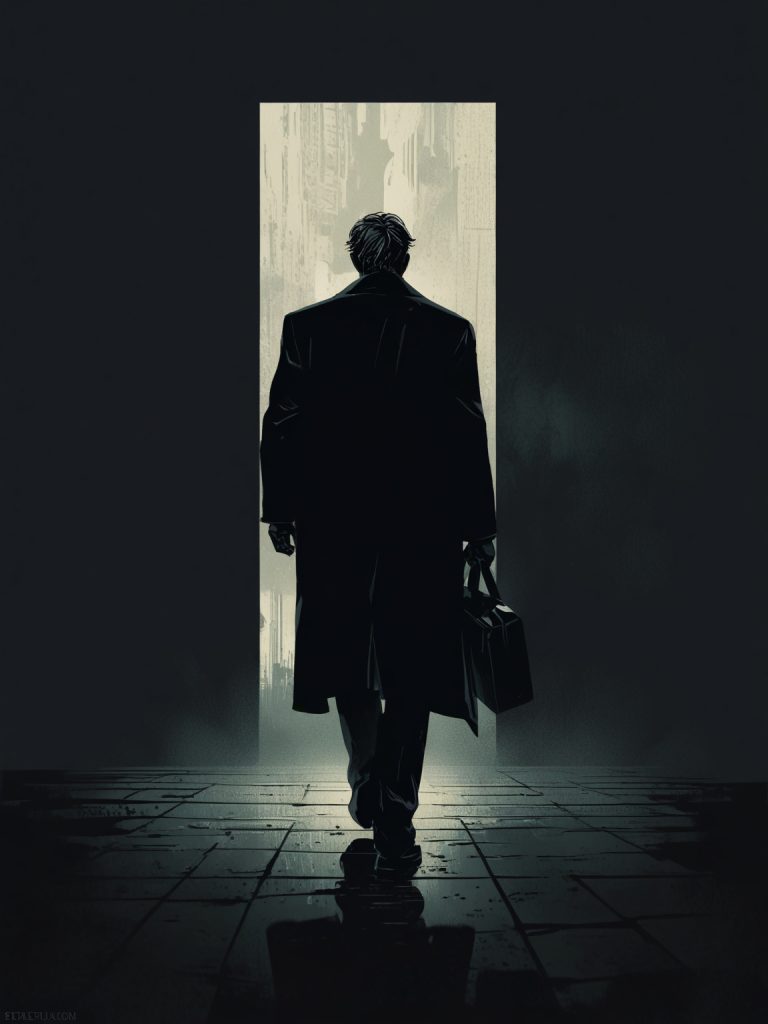
David Fincher’s Se7en isn’t your standard whodunit. It’s a harrowing descent into the abyss, a grimy underbelly where the line between sanity and madness blurs. Unlike your typical detective flick, Se7en isn’t interested in clear-cut heroes and villains. Instead, it throws you headfirst into a world where darkness reigns. Kevin Spacey, in a role that’s a fascinating counterpoint to his deceptive persona in The Usual Suspects, embodies John Doe – a villain who’s less of a flesh-and-blood antagonist and more of a horrifying concept. Doe orchestrates a series of gruesome murders, each meticulously designed to mirror one of the seven deadly sins. His twisted performance is like a discordant note in a once harmonious melody, leaving a trail of shattered lives and a suffocating sense of dread that lingers long after the film’s conclusion. The climax isn’t a triumphant victory for the good guys; it’s a brutal, soul-crushing confrontation that forces you to grapple with the complexities of human nature. Se7en leaves you questioning everything you thought you knew about good and evil, a testament to Fincher’s masterful ability to weave a narrative that’s both disturbing and thought-provoking.
3. No Country for Old Men (2007): A Cat and Mouse Game with No Happy Ending
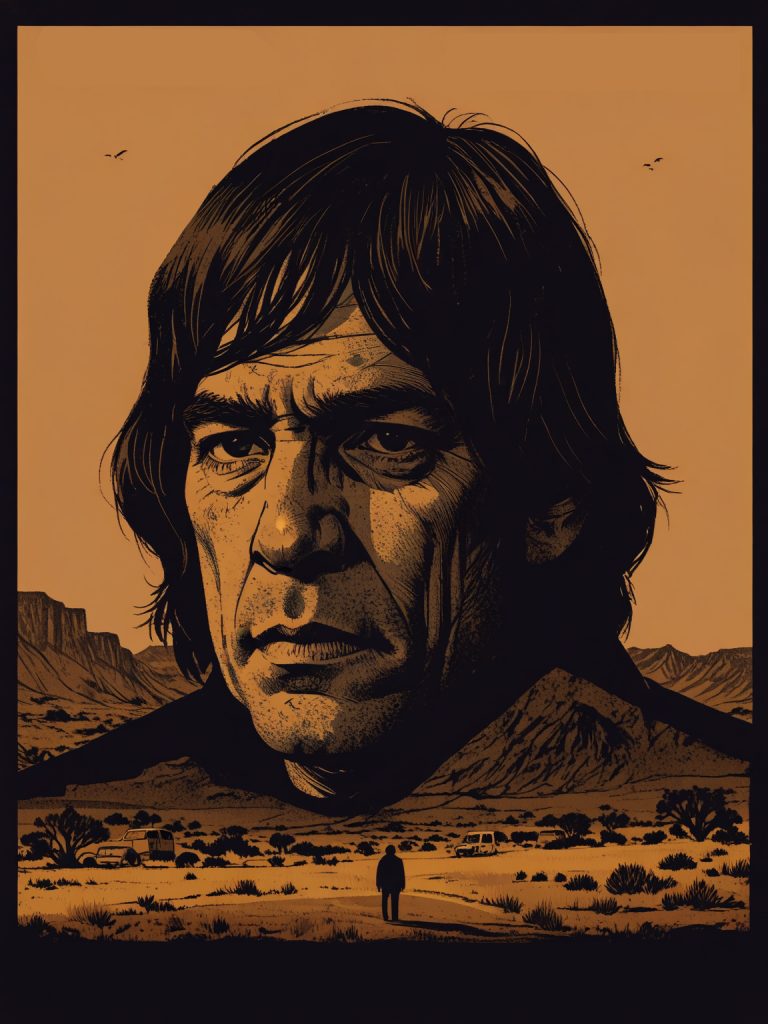
The Coen brothers are notorious for crafting narratives where even the sun seems to cast long, ominous shadows. No Country for Old Men is a prime example. Here, the relentless hitman, Anton Chigurh (Javier Bardem), transcends the role of a mere villain; he becomes a chilling embodiment of unstoppable, almost cosmic, evil. As Chigurh pursues his targets with a cold, unwavering focus, he leaves a bloody trail across the dusty plains, a stark reminder of the fragile hold on order we sometimes cling to.
The film’s conclusion isn’t a satisfying showdown or a triumphant capture. Instead, it delivers a gut punch of existential dread. Chigurh simply vanishes into the night, a shadowy figure melting back into the darkness from which he emerged. It’s a bleak, open-ended finale that lingers long after the credits roll, a stark reminder that sometimes, evil isn’t vanquished or redeemed; it simply endures, a constant, unsettling presence lurking at the edges of our world. This lack of a clear-cut victory forces us to confront the uncomfortable reality that the world isn’t always a place where good prevails. No Country for Old Men doesn’t shy away from this harsh truth, making it a powerful and thought-provoking cinematic experience.
4. The Empire Strikes Back (1980): A Dark Turn for the Rebellion
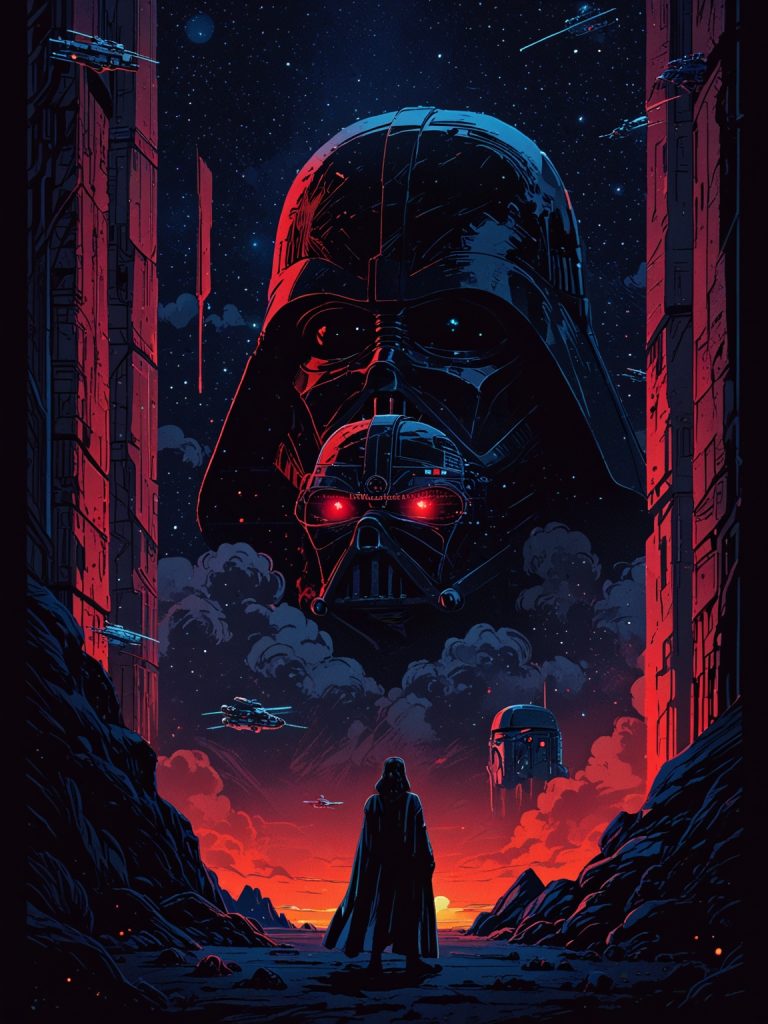
The Force may be strong with Luke Skywalker, but even a Jedi Knight in training can’t win every battle. Star Wars: The Empire Strikes Back throws a hyperdrive-powered wrench into the classic hero’s journey narrative. Here, the idealistic rebellion faces a devastating setback. Darth Vader, the embodiment of the dark side, emerges not as a shadowy figure lurking in the background, but as a relentless and terrifying opponent. The Empire delivers a crushing blow, capturing the charismatic smuggler Han Solo and leaving Luke Skywalker utterly defeated, both physically and emotionally, dangling helplessly above the frozen wasteland of Hoth. This isn’t a happily-ever-after space opera; it’s a brutal coming-of-age story that underscores a harsh truth: victory isn’t guaranteed, even for those fighting for what’s right. The heroes are forced to confront the complexities of good and evil in a galaxy far, far away, a chilling reminder that the fight for freedom is a long and arduous one.
5. Chinatown (1974): A Neo-Noir Nightmare
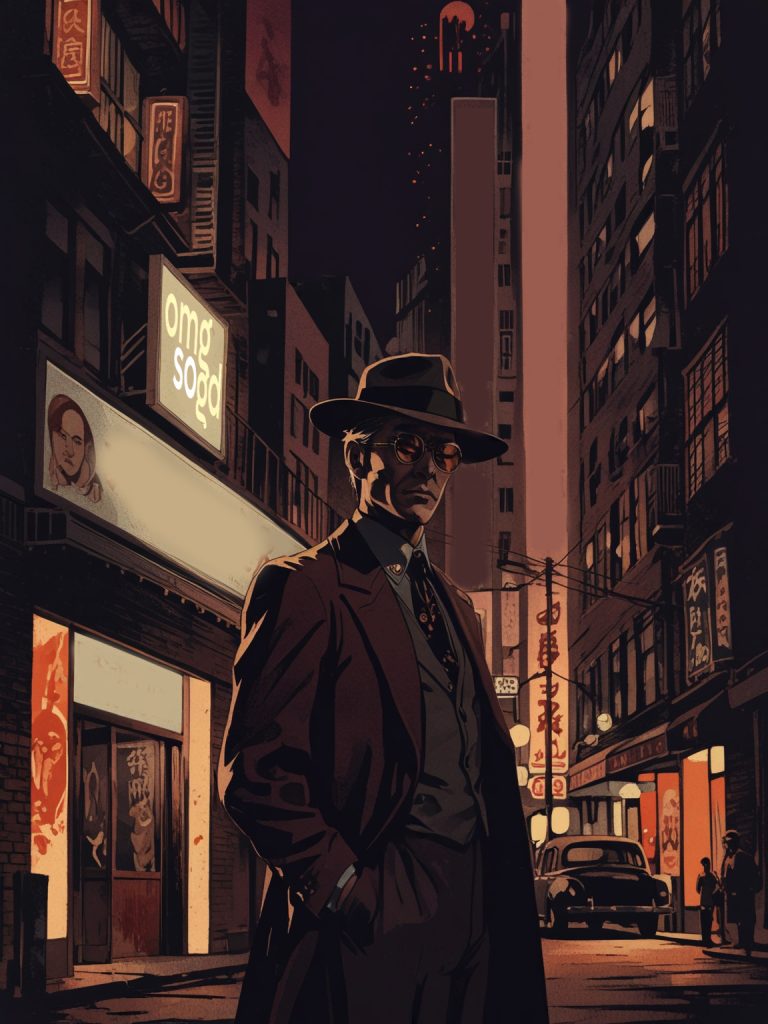
In Roman Polanski’s neo-noir masterpiece, Chinatown, the shimmering Los Angeles heat becomes a suffocating metaphor for the film’s oppressive atmosphere. Forget the glamorous Hollywood portrayals of sunshine and optimism – Chinatown paints a bleak canvas of corruption and disillusionment so profound, it seeps into your bones. Private eye Jake Gittes (Jack Nicholson) isn’t your typical hero. He’s a jaded soul, initially drawn into what appears to be a simple case of infidelity. But as he delves deeper, the case morphs into a labyrinthine nightmare. Each layer he peels back reveals a more grotesque truth, a web of deceit spun by the powerful and ruthless Noah Cross (John Huston).
Unlike the thrillers where good eventually triumphs, Chinatown delivers a cynical punch to the gut. Justice, it seems, is a forgotten dream in this sun-baked city. The film’s ending isn’t a satisfying resolution; it’s a bitter pill to swallow. Cross reigns supreme, a chilling reminder that power often trumps morality. Chinatown isn’t a film that offers easy comfort or catharsis. It forces us to confront the uncomfortable reality that the fight for what’s right can be a losing battle, and the scales of justice may be permanently tipped in favor of those with immense wealth and influence. The film lingers long after the credits roll, a haunting testament to the powerlessness of the individual against a system rigged for the elite.
6. Primal Fear (1996): A Masterful Deception
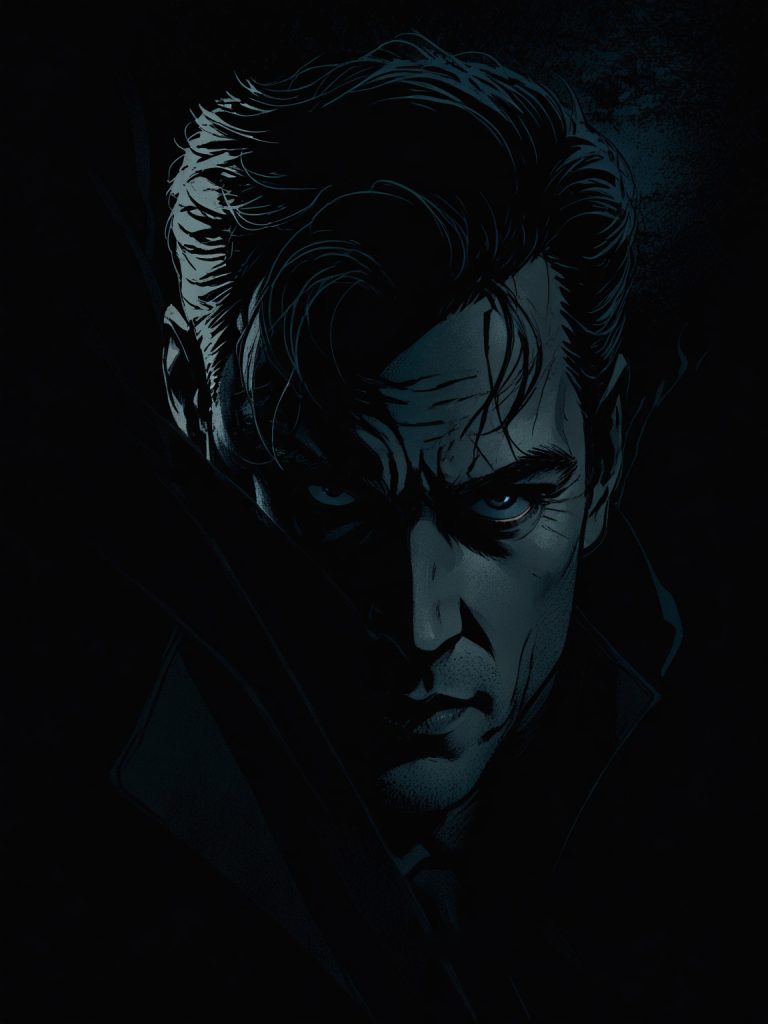
Edward Norton delivers a chilling performance in Primal Fear, a film that will leave you questioning the very fabric of reality and the ability of the justice system to discern truth. He portrays Aaron Stampler, a man accused of a heinous act: the brutal murder of a bishop. Aaron’s initial presentation is a masterclass in deception. His meek demeanor, nervous stutter, and claims of dissociative identity disorder – a psychological condition where a person exhibits two or more distinct personalities – tug at the heartstrings of his defense attorney, Richard Gere. Gere’s character, fueled by a sense of moral obligation, dives headfirst into Aaron’s defense, convinced of his client’s innocence.
But as the film progresses, the meticulously crafted facade begins to crumble. Just when you think you’ve grasped the truth, the narrative takes a sharp turn, a plot twist so unexpected it leaves you reeling. In a stunning revelation, it’s exposed that Aaron has been orchestrating an elaborate performance from the very beginning. His entire persona, the stammering, fragile shell, is a meticulously crafted lie designed to manipulate the legal system and secure his freedom.
This shocking twist throws the justice system itself on trial. It forces us to confront the limitations of human perception and the burden of proof. Can we ever truly know the truth of someone’s heart? Is guilt or innocence determined solely by outward behavior, or do the murky depths of the human psyche hold secrets that even the most skilled lawyers can’t unearth? Primal Fear isn’t just a courtroom drama; it’s a psychological thriller that burrows into the darkest corners of human manipulation. It leaves you questioning the very foundation of truth, the reliability of appearances, and the ability of the legal system to deliver true justice in a world where deception can be as meticulously crafted as Aaron Stampler’s performance.
7. The Dark Knight (2008): When the Hero Becomes the Villain
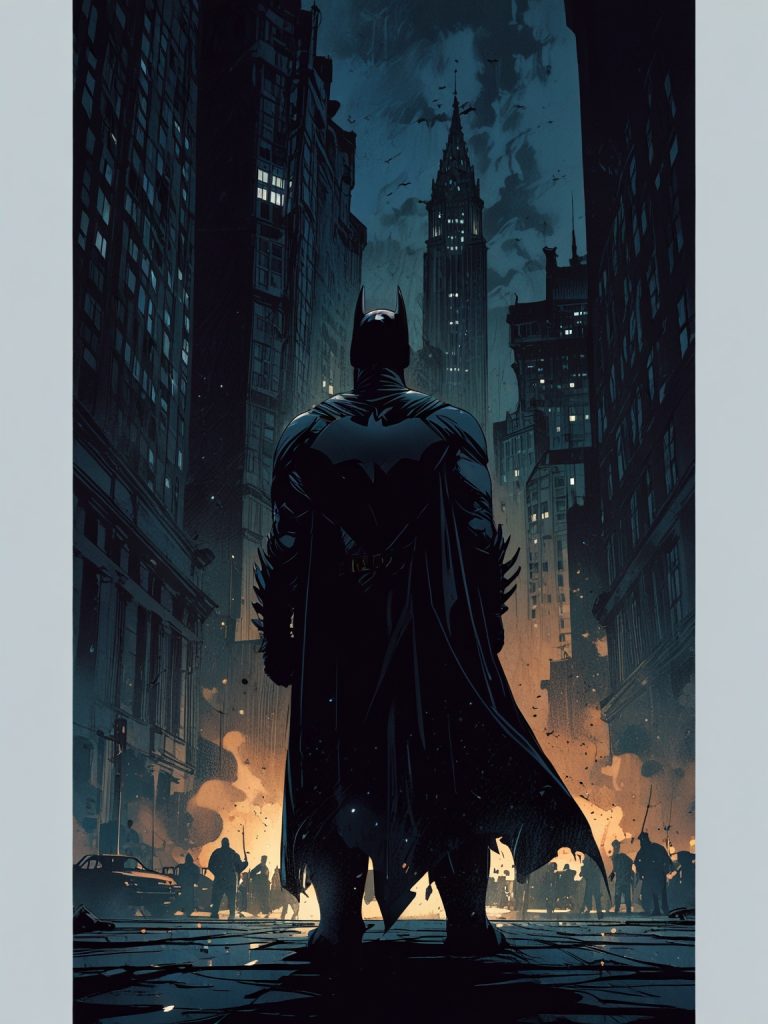
In The Dark Knight, Heath Ledger’s Joker isn’t just a villain; he’s a terrifying agent of chaos, a harbinger of anarchy who thrives on watching the world burn. His manic grin and unpredictable behavior are a constant reminder that even in the darkest corners, some revel in the destruction of order. The Joker’s twisted agenda isn’t just about personal gain; it’s a sadistic attempt to corrupt the very soul of Gotham City, to prove that even the most virtuous can succumb to darkness.
But in this morally ambiguous world, the lines between hero and villain blur. Faced with the Joker’s descent into madness, Batman, the city’s silent guardian, is forced to make a heart-wrenching choice. To preserve a sliver of hope for Gotham, he takes the fall for the crimes of Harvey Dent, the city’s fallen white knight. This act of self-sacrifice casts Batman into the shadows, forever branded an outlaw.
The Dark Knight isn’t a film that celebrates clear-cut victories. It explores the complexities of heroism, where the price of maintaining order can be a descent into darkness for those who fight for it. It forces us to confront the sacrifices made in the name of a greater good and the burden shouldered by those who stand between the light and the encroaching chaos.
8. Gone Girl (2014): A Marriage Gone Psychologically Wrong
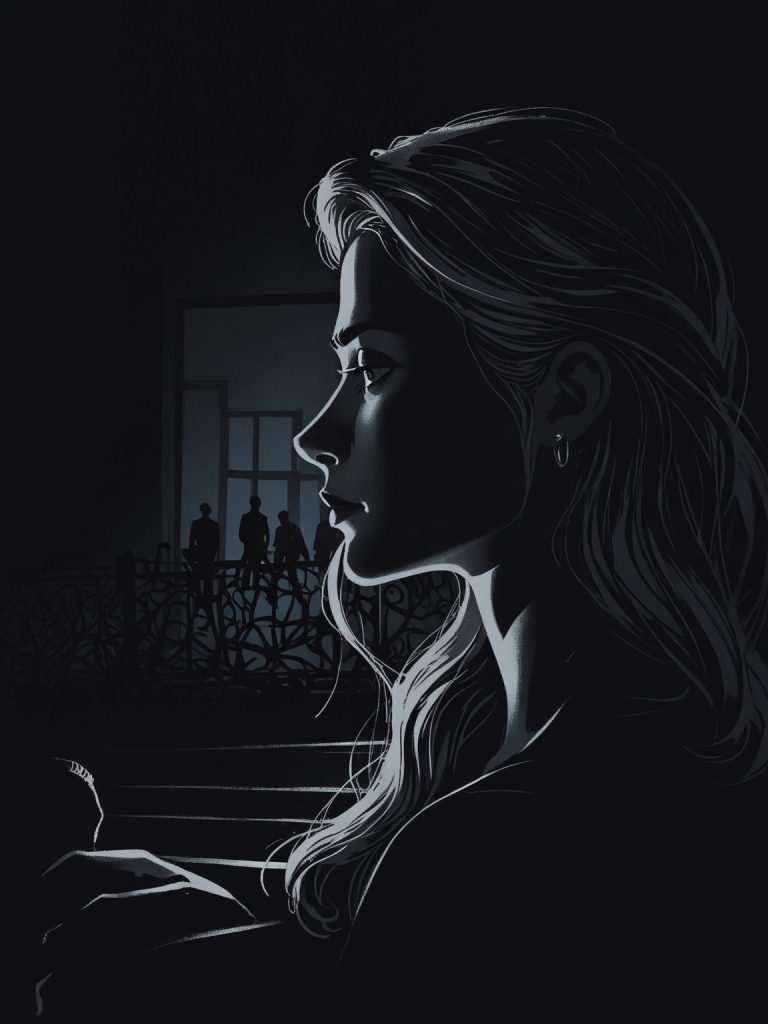
David Fincher, the maestro of unsettling narratives, returns to our list with Gone Girl, a psychological thriller that’ll make you question the very foundation of marital bliss. The film opens with Amy Dunne (Rosamund Pike), the picture-perfect wife, vanishing without a trace. Her husband, Nick (Ben Affleck), becomes the prime suspect, his every move scrutinized under a media microscope. But as the layers peel back, a horrifying truth emerges.
Gone Girl isn’t your typical whodunit. It’s a masterfully crafted exploration of manipulation and deception. The twist? Amy orchestrated her own disappearance, meticulously framing Nick to appear like the villain. As the story unfolds, we witness the terrifying depths of her cunning and the chilling realization that the woman Nick thought he knew was a meticulously crafted illusion. This film isn’t just a suspenseful ride; it’s a scathing indictment of appearances and a chilling reminder that sometimes, the greatest threats lurk within the seemingly familiar. Gone Girl leaves you questioning everything you thought you knew about love, trust, and the terrifying potential for a marriage to go irrevocably wrong.
9. Arlington Road (1999): A Conspiracy You Won’t See Coming
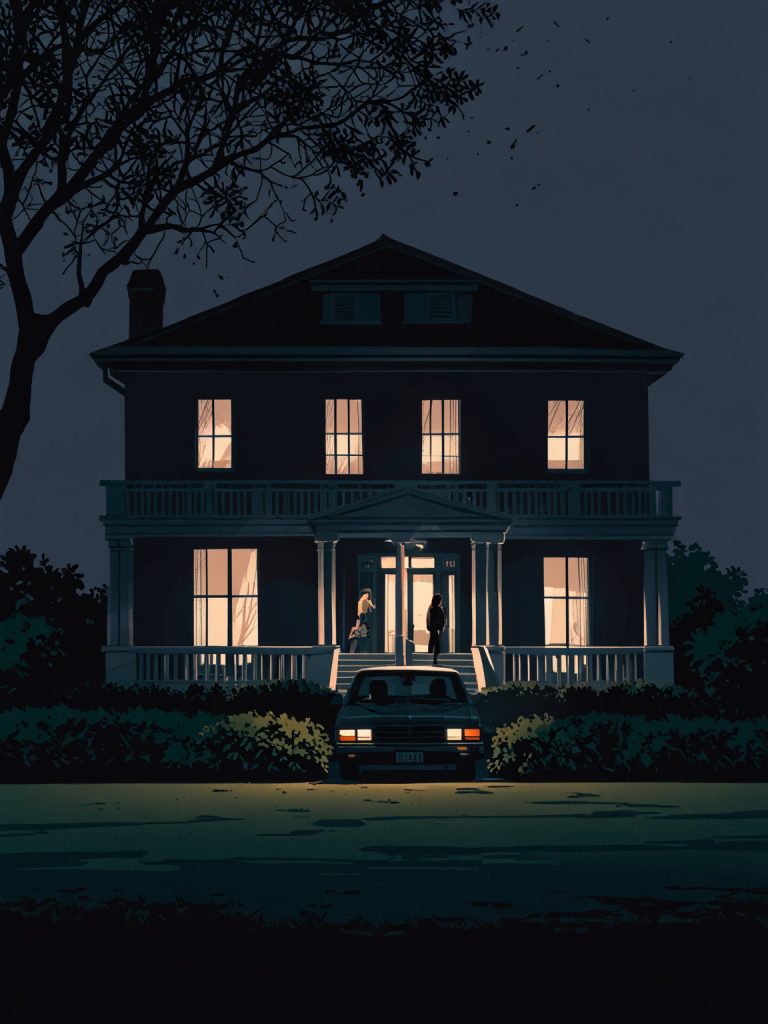
In the chilling thriller Arlington Road, normalcy takes a sinister turn. Michael Faraday (Jeff Bridges), a jaded history professor, believes he’s befriended a harmless colleague, Oliver Lang (Tim Robbins). Lang seems like the picture of academic respectability. But beneath the mild-mannered facade lurks a terrifying truth.
Lang orchestrates a devastating terrorist attack, shattering the illusion of a peaceful suburban existence. With horrifying skill, he frames Faraday, turning the protagonist’s life upside down and leaving him powerless to stop the descent into chaos. The audience, alongside Faraday, is thrown into a tailspin. Our perception of normalcy is shattered, replaced by a chilling sense of unease. Arlington Road isn’t just a suspenseful ride; it’s a film that forces us to question how well we truly know the people around us. The line between ordinary and monstrous blurs, leaving a lingering sense of dread and a reminder that appearances can be deceiving.
10. Nightcrawler (2014): A Morality Tale You Won’t Forget
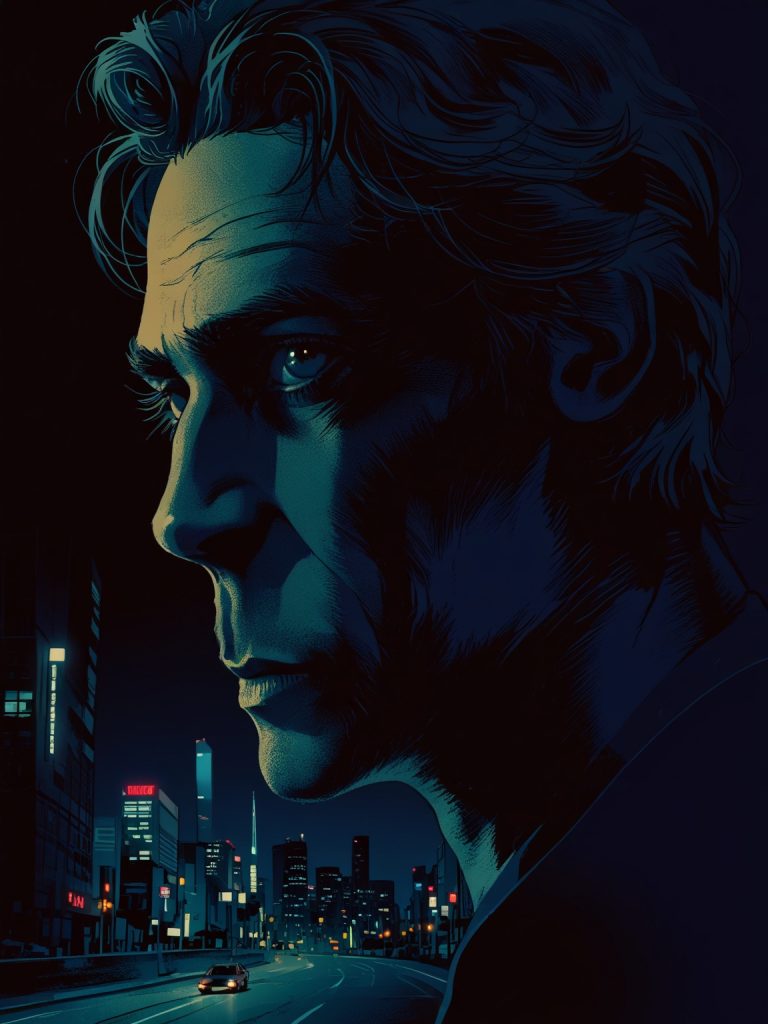
In Nightcrawler, Jake Gyllenhaal doesn’t portray your typical villain. He’s not a cackling madman or a power-hungry criminal. Lou Bloom (Gyllenhaal) is a chilling representation of a much more insidious evil: unchecked ambition. Obsessed with capturing the grimy underbelly of Los Angeles on camera, Lou’s morals are as flexible as his camerawork. He manipulates crime scenes for maximum shock value, inserts himself into tragedies for a better shot, and blurs the line between observer and participant with horrifying ease.
The truly terrifying aspect? By the film’s end, Lou thrives. He builds a successful career exploiting human suffering, a stark reminder of the dark side of media sensationalism. Nightcrawler isn’t just a thriller; it’s a disturbing reflection of our voyeuristic tendencies and the ethical abyss some will cross for that perfect headline or viral video. It leaves you questioning the price of sensationalism and the chilling consequences when entertainment trumps empathy.
So, why are these films with villainous victories so compelling?
They challenge our comfort zones. We crave happy endings, but these movies force us to confront the uncomfortable reality that evil sometimes prevails. They leave us pondering the complexities of human nature and the ambiguity of morality. They spark conversation and debate, making them more than just popcorn flicks.
Want to delve deeper into the world of unconventional endings?
There’s a whole subgenre dedicated to exploring the dark side – films categorized as “grimdark” or “downer endings.” Explore these genres if you’re ready for a challenge to your expectations and a thought-provoking cinematic experience.
Don’t always expect a fairytale ending. Sometimes, even darkness can be powerful and thought-provoking.
Real-World Examples of Evil Prevailing (and Why They Still Matter)
The movies we explored highlighted how fictional narratives can portray villains winning. But can this concept be applied to the real world? Absolutely. Here are a few recent events that demonstrate how evil can sometimes appear to prevail, though these situations can also inspire action and positive change:
- The January 6th Capitol Riot (2021): A mob of supporters of former US President Donald Trump stormed the Capitol building in an attempt to overturn the results of a fair election. While the attack ultimately failed to disrupt the democratic process, it highlighted the dangers of extremism and misinformation https://www.washingtonpost.com/national-security/2022/12/19/takeaways-jan-6-committee-report-introduction/.
- The Ongoing War in Ukraine (2022-Present): Russia’s invasion of Ukraine is a stark example of a powerful nation bullying a smaller one. While the Ukrainian people have mounted a courageous resistance, the war has caused immense suffering and destruction https://www.nytimes.com/news-event/ukraine-russia.
- The Enron Scandal (2001): This massive corporate fraud involved Enron, an energy company, manipulating its financial statements for years. The company’s executives enriched themselves while employees lost their jobs and investors lost billions. While some executives were eventually convicted, the scandal exposed the dangers of corporate greed and corruption https://www.investopedia.com/updates/enron-scandal-summary/.
These events may leave us feeling discouraged or powerless. However, they can also serve as catalysts for positive change. The Capitol riot led to increased scrutiny of social media’s role in spreading misinformation. The war in Ukraine has sparked a global movement of support and a reevaluation of our reliance on certain countries. The Enron scandal led to stricter corporate governance regulations.
Even when the path to justice seems long, these situations can inspire action and a renewed commitment to fighting for what’s right. The movies we discussed may show evil winning, but they can also remind us of the importance of perseverance and the enduring human spirit.
Ready to see good triumph over evil (the usual way)?
The next time you settle in for a movie night, don’t just root for the hero in the white hat. Sometimes, the villains offer a more surprising (and disturbing) twist. After all, who says bad guys can’t be the most memorable (or leave you questioning everything you thought you knew about good and evil)? Buckle up, and get ready to be entertained (and maybe a little unsettled) by the dark side of storytelling.
There are plenty of fantastic films out there where the heroes win! Let us know in the comments below – what are your favorite movies with satisfying, classic good-versus-evil showdowns?




